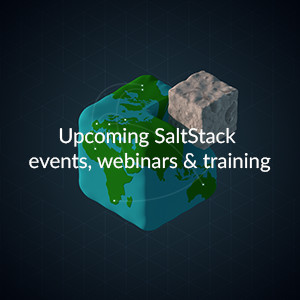You are viewing docs from a branch that is no longer active. You might want to view docs for the 2015.8.x release instead.
salt.modules.glusterfs¶
Manage a glusterfs pool
-
salt.modules.glusterfs.create(name, bricks, stripe=False, replica=False, device_vg=False, transport='tcp', start=False)¶ Create a glusterfs volume.
- name
- Name of the gluster volume
- bricks
- Bricks to create volume from, in <peer>:<brick path> format. For multiple bricks use list format: '["<peer1>:<brick1>", "<peer2>:<brick2>"]'
- stripe
- Stripe count, the number of bricks should be a multiple of the stripe count for a distributed striped volume
- replica
- Replica count, the number of bricks should be a multiple of the replica count for a distributed replicated volume
- device_vg
- If true, specifies volume should use block backend instead of regular posix backend. Block device backend volume does not support multiple bricks
- transport
- Transport protocol to use, can be 'tcp', 'rdma' or 'tcp,rdma'
- start
- Start the volume after creation
CLI Example:
salt host1 glusterfs.create newvolume host1:/brick salt gluster1 glusterfs.create vol2 '["gluster1:/export/vol2/brick", "gluster2:/export/vol2/brick"]' replica=2 start=True
-
salt.modules.glusterfs.delete(target, stop=True)¶ Deletes a gluster volume
- target
- Volume to delete
- stop
- Stop volume before delete if it is started, True by default
-
salt.modules.glusterfs.list_peers()¶ Return a list of gluster peers
CLI Example:
salt '*' glusterfs.list_peers
-
salt.modules.glusterfs.list_volumes()¶ List configured volumes
CLI Example:
salt '*' glusterfs.list_volumes
-
salt.modules.glusterfs.peer(name)¶ Add another node into the peer list.
- name
- The remote host to probe.
CLI Example:
salt 'one.gluster.*' glusterfs.peer two
-
salt.modules.glusterfs.start_volume(name)¶ Start a gluster volume.
- name
- Volume name
CLI Example:
salt '*' glusterfs.start mycluster
-
salt.modules.glusterfs.status(name)¶ Check the status of a gluster volume.
- name
- Volume name
CLI Example:
salt '*' glusterfs.status myvolume
-
salt.modules.glusterfs.stop_volume(name)¶ Stop a gluster volume.
- name
- Volume name
CLI Example:
salt '*' glusterfs.stop_volume mycluster

